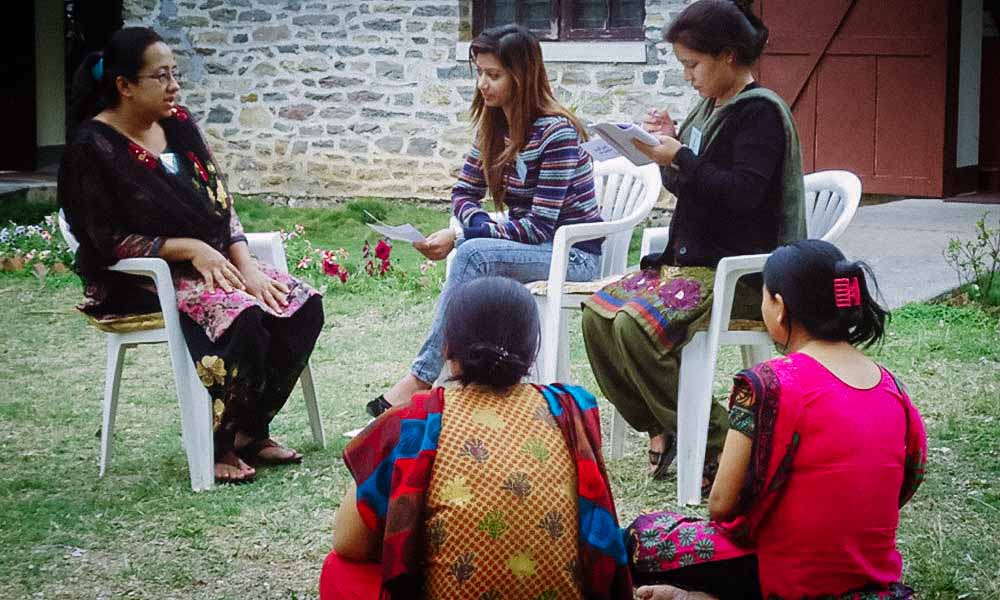Today [10 Oct] is World Hospice and Palliative Care Day. This year the day’s title ‘Hidden Patients, Hidden Lives’ is being used to highlight the lack of access to palliative care for many millions of people around the world, including those living in low-income countries such as Nepal. INF is marking this day, highlighting its commitment to developing palliative care for the vulnerable and marginalized in Nepal.
Palliative care is the practice through which patients with life-limiting conditions receive holistic care – physical, psychological, social and spiritual – all offered through a patient-centred approach. It focuses on the patient within their family unit, not forgetting the needs of the family before or after the death of the patient. This approach is appropriate for, but not limited to, people with advanced non-communicable diseases – such as heart failure, respiratory disease and cancer, frailty due to old age, chronic disability and HIV. It is also appropriate for children as well as adults. Provision of good palliative care can lessen the continuation of active treatment that is no longer producing results and thus avoid often expensive and unhelpful treatment continuing. It enables patients and families to concentrate on achieving the best possible quality of life and time together before death.
In Nepal, palliative care first started around 2000, with limited hospices and hospital services provided in Kathmandu and at the BP Koirala Memorial Cancer Hospital in Bharatpur, Chitwan. NF’s Green Pastures Hospital and Rehabilitation Centre also has a small palliative care service with two beds, the only known palliative care service west of the capital. Although 83% of people live in rural areas in Nepal, almost none of them, in any district, have access to palliative care.
In 2014, Nepal signed the World Health Assembly Declaration on Palliative Care, committing to working towards integrating palliative care into its general health services. INF is committed to working with the Nepal government and other groups within Nepal to make this a reality. We have placed a palliative care consultant in the Bir Hospital who is helping them develop palliative care services and we are working with the Nepalese Association for Palliative Care (NAPCare) to develop an appropriate palliative care plan for meeting the needs of the Nepali people. INF’s extensive experience in working with the vulnerable in the rural West Nepal forms a firm platform on which to advise and promote appropriate models of palliative care for in some of Nepal’s most remote areas.
INF staff at Green Pastures will mark the day, celebrating the past year of palliative care initiatives and successful research into pain management that has occurred over the last year, families who have walked the palliative care journey will be invited to join staff in their celebrations.
PRAY|GIVE|GO|SHARE Pray that INF’s ongoing work of promoting and advising on palliative care initiatives would be successful. Donate specifically to palliative care work. Sign up for our INF Palliative Care Newsletter and become and advocate for our work
Let’s work together so that there will no longer be people suffering for lack of palliative care in Nepal. No more “Hidden Patients and Hidden Lives”.
For more information on INF initiatives, contact: ruth.russell@inf.org or daniel.munday@inf.org
For more information on World Hospice and Palliative Care Day 2015 see here.



